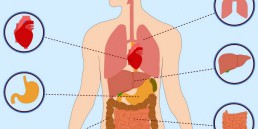Why you need a Last Will & Testament
Making a Will is a way of showing that you really care about whoever is left behind and that you have done your best to leave your property and finances in the most thoughtful way possible.
Whether or not you leave a Will is going to have a significant impact on how you are remembered – were you someone who took time and care to ensure your loved ones were provided for after your death, or were someone who just left everything to chance and hoped it would all be alright?
Last Will & Testament glossary
Below is a glossary of the words that are used in the context of writing a last will and testament. We hope that they are clear and are of value
- Administrator: someone who is appointed to arrange a person’s affairs if they leave no will.
- Beneficiary: an individual or organisation who receives a gift in a will.
- Codicil: a document which enables a simple update or alteration to an existing will.
- Chattels and moveables: personal possessions, including furniture and car.
- Estate: all a person’s possessions at the time of their death, including money and property.
- Executor: the person appointed to carry out the instructions in a will.
- Digital Executor: the person appointed to carry out the instructions in a digital will.
- Intestate: you are intestate if you die without making a will.
- Legacy: a gift left to a person or organisation in a will.
- Life interest: a two stage legacy, where the first beneficiary is given the use of an asset (e.g. a house) during their lifetime. After their death the asset passes to the second beneficiary.
- Pecuniary legacy: a gift of a fixed amount of money.
- Probate: the legal procedure to decide whether someone’s left a valid will.
- Residue: the sum left from an estate when all debts, charges and gifts are deducted.
- Residuary legacy: a gift consisting of the residue or part of the residue of an estate. This is a particularly popular way to leave a gift to a charity.
- Specific legacy: a gift of a particular item eg jewellery.
- Testator (male) or testatrix (female): the person who is making the will.
MyWishes free to use software was developed under the guidance of healthcare, hospice, legal and funeral professionals. Our platforms empowers society to make plans for both themselves and those they care about.
Other tutorials that you might find of value

Michael Sobell Hospice Palliative Care Department Mount Vernon Hospital, Gate 3 Northwood HA6 2RN United Kingdom (Map)
- Register and document your wishes for free here
- For all enquires click here
- To learn how MyWishes works click here





